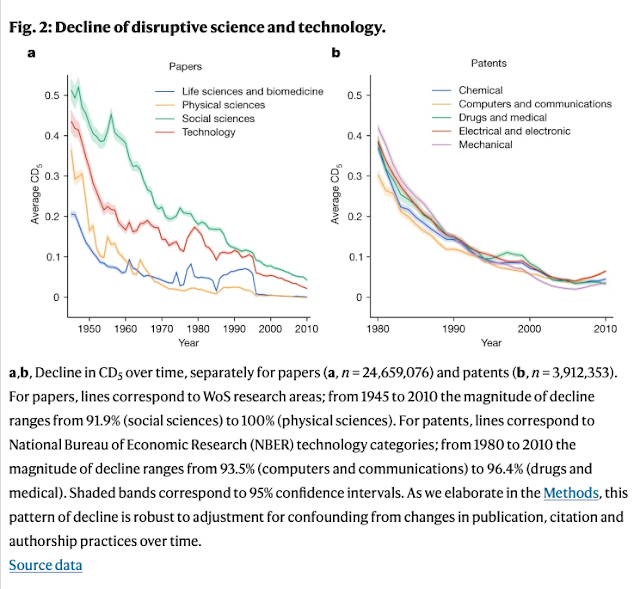Economic growth is closely tied to productivity and productivity is linked to innovations in science. The link between scientific discovery and business innovation can take time and increases in productivity can be delayed for decades from the initial breakthrough, but discovery in science is necessary for this process of economic technological change to work. No new discoveries and there will be limited technological change. No new technology and productivity will not improve, and real incomes will not increase.
Recent work suggests that science is becoming less disruption. Now, this is not easy to measure, but some have taken on the task and finds that papers and patents are up but cutting edge discoveries are down on a relative basis. See "Papers and patents are becoming less disruptive over time" in Nature. There are fewer breakthrough discoveries and more of the research work is mopping up what has already been discovered or just improving ideas on the margin. Of course, these improvements are important, but big technological change is not driven by marginal science. There is more research being done, more papers being published, more patents being granted but the level of disruption is falling.
The authors form a CD index that looks at the consolidation and disruption of research through looking at a papers and patents to measure how often subsequent work will reference prior work to the innovation. A disruptive work will see future research refer less to work before the innovation. A true breakthrough will choke off the use of prior research. This is an innovative way of thinking about disruption, but it gives a measure for discussion.
We are will not feel the effect of this slowdown immediately, but the cumulative effect of less disruptive research will start to weigh on productivity. The link may be weak, but the ramifications of less new science will impact all economies.


No comments:
Post a Comment